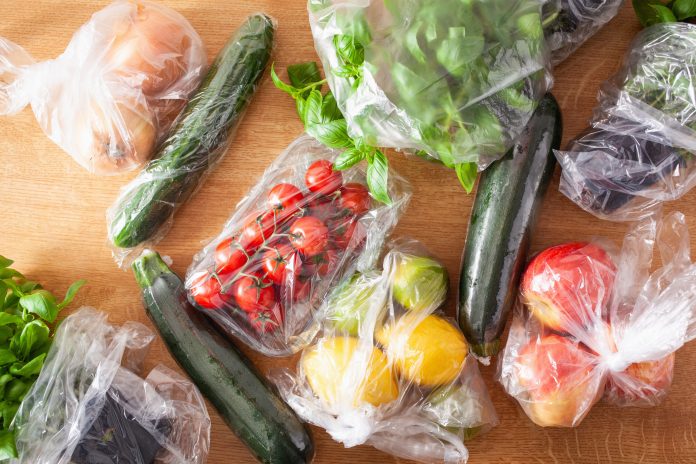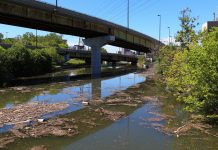Single-use plastics could be banned in England in the latest Government proposal to stop the production and consumption of all avoidable plastic waste
As part of a public consultation, the UK Government aims to tackle all problematic plastics which are polluting landscapes and wildlife.
As set out by Environment Secretary George Eustice, single-use plastic plates, cutlery, polystyrene cups and food and beverage containers could all banned. The Government additionally wants to enable mandatory labelling on packaging to help consumers dispose of these items correctly.
The Government will additionally consult stakeholders for views on tackling regularly littered plastics such as wet wipes, tobacco filters, sachets, and single-use cups.
During a 12-week public consultation for proposals, businesses and consumers are now required to move towards more sustainable alternatives. Companies are required to take action to cut avoidable waste, such as shops stocking alternatives to conventional plastic wipes.
“Shifting the responsibility to manufacturers to tackle the single-use plastics they are producing”
England uses 1.1 billion single-use plates and 4.25 billion items of single-use cutlery, which are predominantly plastic, per year. However, only 10% are recycled upon disposal.
The UK uses 2.5 billion disposable coffee cups per year. Additionally, plastic sachets are often not recycled due to their small size, which makes it hard to segregate and clean them.
The inappropriate disposal of plastic causes immense environmental damage, even just a single plastic item used for a few minutes can remain in the environment for hundreds of years and endanger wildlife and habitats.
Subsequently, when broken down into microplastics, plastic pollution affects soils, waterways, ocean and food chains within them, including the food we eat. Globally more than one million birds and over 100,000 sea mammals and turtles die every year from eating or getting tangled in plastic waste.
Environment Secretary George Eustice said: “Plastic damages our environment and destroys wildlife. This Government has waged war on unnecessary, wasteful plastics – banning the supply of plastic straws, stirrers and cotton buds, while our carrier bag charge has cut consumption by 95% in the main supermarkets.
“But it’s time we left our throwaway culture behind once and for all. Through our world-leading Environment Act, we will reduce waste and make better use of our resources, helping us to build back greener and leave the environment in a better state than we found it.
“These new plans represent the next major step in eradicating the use of problematic plastics that pollute our natural world.”
“Moving to sustainable alternatives without unfairly impacting consumers”
After passing the Environment Act, enabling tougher action on single-use plastics in England, the UK is taking further steps to tackle plastic pollution, banning microbeads in rinse-off personal care products, and restricting the supply of single-use plastic straws, stirrers and cotton buds.
Through the Environment Act, the Government’s further measures to tackle plastic pollution include:
- Introducing a Deposit Return Scheme for drinks containers to recycle billions more plastic bottles and stop them being landfilled, incinerated, or littered. Through a small deposit placed on drinks products, this scheme will incentivise people to recycle
- The Extended Producer Responsibility scheme will mean packaging producers will be expected to cover the cost of recycling and disposing of their packaging
- Plans for Consistent Recycling Collections for every household and business in England will ensure more plastic is recycled.
The success of the 5p charge on single-use carrier bags – which cut consumption in the main supermarkets by 95% since 2015 – will now be increased to 10p and extended to all retailers, aiming to take billions more bags out of circulation.
The government is also introducing a plastic packaging tax from April 2022, set at £200 per tonne, which doesn’t meet a minimum threshold of at least 30% recycled content. This is to encourage greater use of recycled plastic.
David Scott, Corporate Affairs Director at Morrisons, said: “Reducing plastic packaging is one of the top issues our customers care about. We want to help customers live their lives with less reliance on plastic. We’ve already banned many single-use plastics across our stores – including plastic plates, cutlery and straws, and we’ve developed recycling systems for soft plastics.
“Only this week we’ve announced we’re building a new soft plastic recycling site here in the UK. So we welcome Defra’s consultation and look forward to working with the whole of the industry on it.”
Steve Hynd, City to Sea’s Policy Manager said: “Today’s announcement to ban some of the most polluting single-use plastic is hugely welcome.
“Almost 100,000 people signed our petition earlier this year calling on Government to take urgent action and we’re pleased to see the public’s concerns being taken seriously. There is a long journey ahead in tackling plastic pollution, but this is a positive and important first step.”











